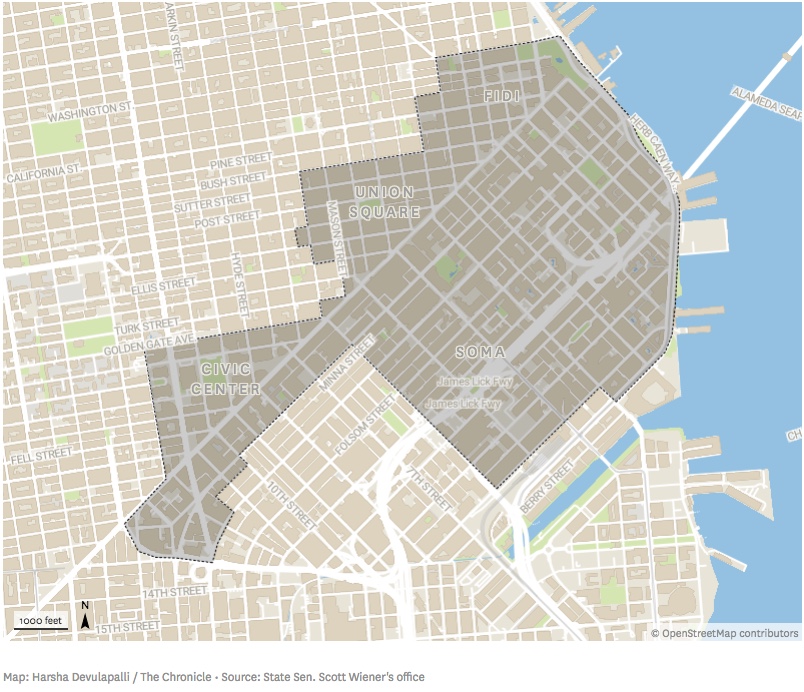By Joe Fitzgerald Rodriguez : kqed – excerpt
As Board of Supervisors President Aaron Peskin mulls a run for mayor, how people view his opposition to market-rate housing would be both a strength and a vulnerability should he jump in the race.
That’s particularly true in San Francisco’s west side, a neighborhood replete with single-family homes where people have rallied against state laws that would allow more multi-story housing to be built. Peskin is sometimes viewed as a champion of saving neighborhood character from what residents consider to be outsize new construction.)
George Wooding, a neighborhood activist who lives just west of Twin Peaks, said neighbors are angry about Mayor London Breed’s “Housing for All Plan,” which would incentivize building taller, denser housing. He said they worry there isn’t enough parking or infrastructure to support the plan.
“That’s going to be one of the turning points of the mayor’s race on the west side,” Wooding said. “Anybody with a brain running for mayor is going to start attacking the density programs.”
San Francisco’s next mayor will steer the city’s future approach to housing.
Peskin is on one side of a divide in development philosophy between moderate and progressive Democrats in San Francisco. The moderates want the city to build, build, build to bring housing costs down. Progressives want the city to focus on building affordable housing while fiercely defending tenant protections…
“Government has a role to play. And a progressive mayor, I think, can do so much more to protect and enhance our existing residents and our existing small businesses,” Peskin said…
Eileen Boken, a west side advocate who frequently attends City Hall meetings, said her neighbors were “blindsided” by state Sen. Scott Wiener’s proposal to wrest housing approval control of Ocean Beach away from the California Coastal Commission…(more)
RELATED:
Petition to Oppose SB 951 and Keep our Pacific Coastline Free and Open.
https://actionnetwork.org/petitions/no-on-sb-951-keep-california-coastline-open-and-accessible-2
Peskin’s statement says it all..”We don’t have to destroy San Francisco to save it.”
This statement is profound and comes at a pivotal time. One may walk by many up-zoned empty projects lining streets of empty sidewalks fronting sad boarded up storefronts along streets that were “improved” by SFMTA. We have seen enough destruction already. Now it is time to fix the mess we find ourselves in. We need to restore San Francisco’s once safe friendly neighborhoods that we had before the bulldozers arrived. We need to fill all the holes in the streets and quit digging more. We need a respite from the dust and noise.
In may opinion, the candidates do not fall into left/right categories.

